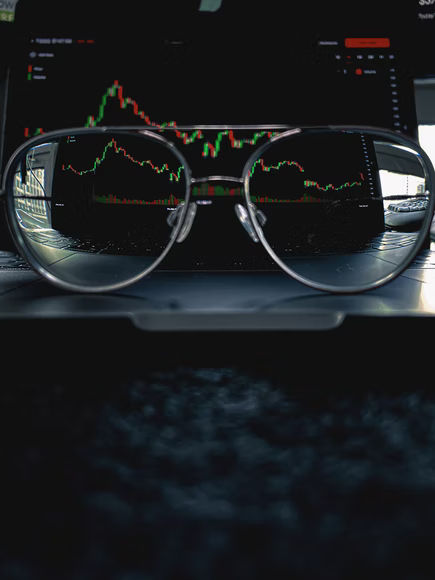Major indices gained for the second week in a row due to purchasing demand in index pivotals. The expectation that global central banks could be hesitant to raise interest rates helped stocks rise. The sentiment was also supported by easing commodity prices and net purchasing by foreign institutional investors (FIIs) during the previous several days. The Nifty closed over the 17,150 mark.
Also Read| To fight inflation, Asian economies must raise rates rapidly: IMF
During the week, the major indices gained ground in three of the five trading sessions. The Nifty closed over the 17,150 level. The Sensex gained 1,498.02 points, or 2.67%, in the week ending Friday, July 29, 2022, to conclude at 57,570.25. The Nifty 50 index rose 438.80 points, or 2.62%, to 17,158.25.
The BSE Mid-Cap index gained 1.65% to 24,050.90. The BSE Small-Cap index rose 1.06% to 27,056.38.
Also Read| Where to invest during high inflation?
How equity benchmarks performed on a weekly basis:
Monday, July 25, 2022
The major market indices concluded the day with minor losses, halting a six-day winning trend. Metals and IT stocks defied the trend, but auto stocks drove the indices down. The S&P BSE Sensex fell 306.01 points, or 0.55%, to 55,766.22. The Nifty 50 index fell 88.45 points, or 0.53%, to 16,631.
Also Read| How post-pandemic markets have behaved historically
Tuesday, July 26, 2022
The domestic stock barometers finished with significant losses. The S&P BSE Sensex lost 497.73 points, or 0.89%, to 55,268.49. The Nifty 50 index fell 147.15 points or 0.88% to 16,483.85.
Also Read| How Paul Volcker tamed inflation with two recessions in 1980s
Wednesday, July 27, 2022
The benchmarks finished with significant increases. The S&P BSE Sensex increased by 547.83 points, or 0.99%, to 55,816.32. The Nifty 50 index rose 157.95 points, or 0.96%, to 16,641.80.
Also Read| The 2008 market crash: Inside the doomsday machine and a brief history
Thursday, July 28, 2022
The indices finished with strong gains, mirroring bullish global indications. The S&P BSE Sensex increased 1,041.47 points, or 1.87%, to 56,857.79. The Nifty 50 gained 287.80 points, or 1.73%, to 16,929.60.
Also Read| Harshad Mehta scam: How Big Bull shook the Indian stock market
Friday, July 29, 2022
The domestic equity benchmarks rose for the third straight session. The S&P BSE Sensex increased 712.46 points, or 1.25%, to 57,570.25. The Nifty 50 rose 228.65 points, or 1.35%, to 17,158.25.
Also Read| How to survive a market crash
What happened in the Global markets:
India
The International Monetary Fund (IMF) lowered its global growth forecast on Tuesday and warned that the world might soon enter a recession. According to the IMF, global economic growth would likely fall to 3.2% this year, down from the 3.6% estimated in April. India’s forecast has been lowered by 0.8 percentage points to 7.4%. According to the IMF, India’s adjustment reflects primarily less favourable external conditions and more aggressive policy tightening. The negative adjustments to growth in emerging markets and developing economies reflect mainly the steep slowdown in China’s economy and the slowing in India’s economic growth.
Also Read| Why global economy is not in recession yet
Japan
Japan’s industrial production increased 8.9% in June compared to the previous month, according to the ministry of economy, commerce, and industry on Friday. On Tuesday, the Bank of Japan issued the minutes of its June meeting, after holding interest rates at ultra-low levels the previous week. Members of the BOJ policy board stated that the economy was on its path to recovery from the impacts of Covid, but that it still required significant financial assistance owing to pressure from rising commodity prices. According to the minutes, they also agreed that it was critical to pay close attention to developments in economic and forex markets and their influence on Japan’s economic activity and pricing.
Also Read| Great Depression to COVID: Top 5 market crashes in American history
South Korea
The Bank of Korea predicts that the economy of South Korea expanded by 0.7% in the second quarter of 2022 in comparison to the first quarter. In the January-March quarter, the country’s GDP increased by 0.6%.
Also Read| US inflation rate at a 40-year high | A timeline: 1930-2022
United States
For the second consecutive quarter, the US economy contracted from April to June. The Bureau of Economic Analysis said Thursday that economic growth in the United States declined 0.9% in the second quarter. GDP fell by 1.6% in the first quarter. The statistics fueled investor speculation that the Federal Reserve may not need to raise interest rates as aggressively as some had expected.
Also Read| Explained: Difference between RBI’s accommodative, neutral & hawkish stance
The Federal Reserve raised interest rates by 0.75 percentage points on Wednesday to combat inflation, bringing the benchmark rate to a range of 2.25% -2.5%. With the hike, the funds’ rate has reached its highest point since December 2018. In a press conference, Fed Chair Jerome Powell stated that the Fed may raise rates by 0.75 percentage points again in September, depending on the data.







